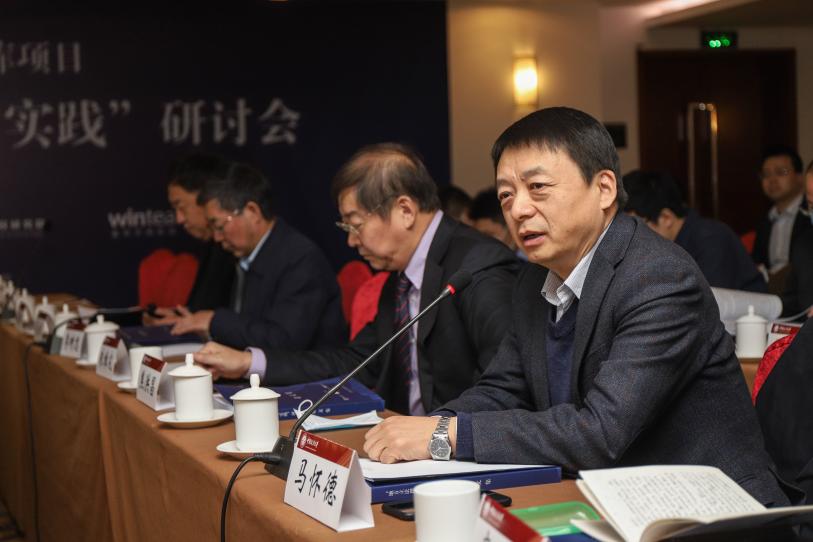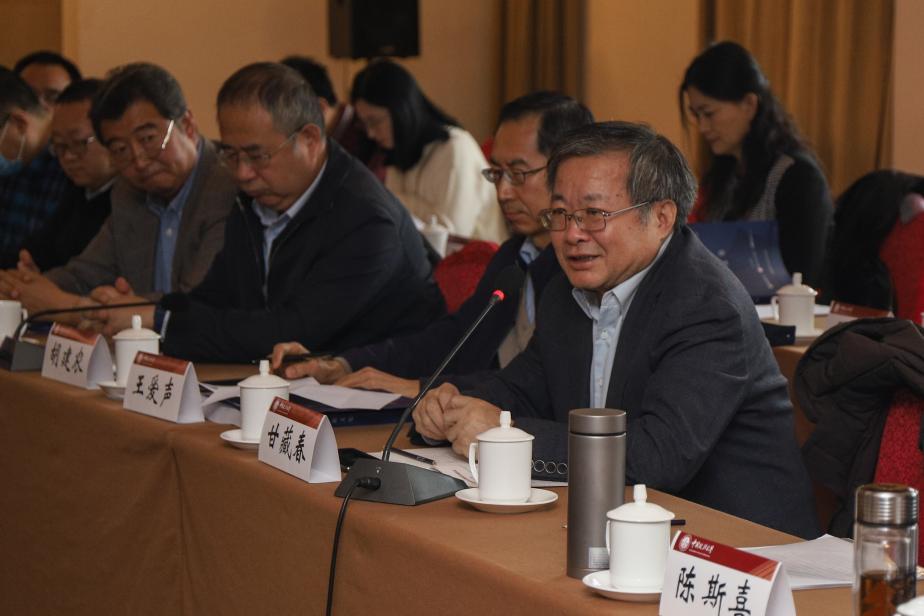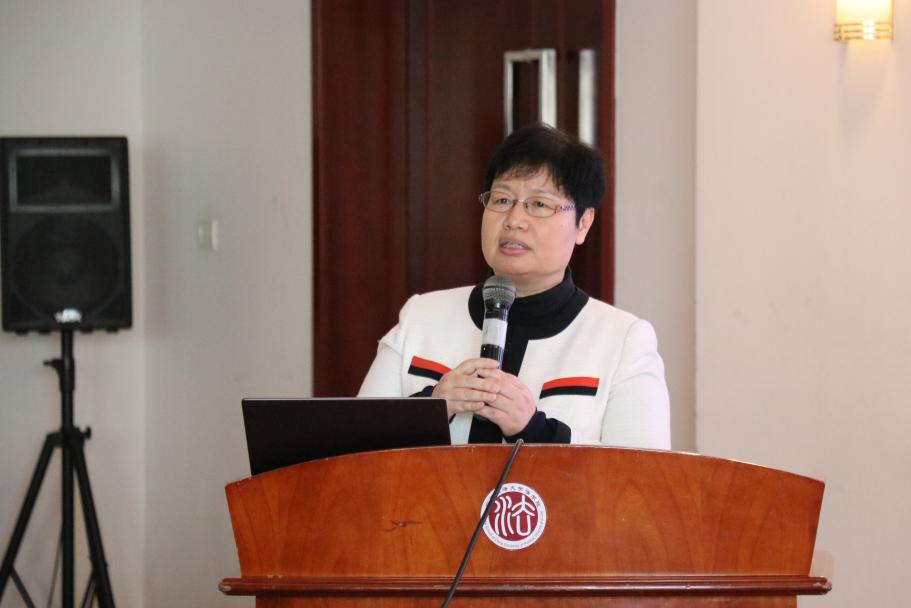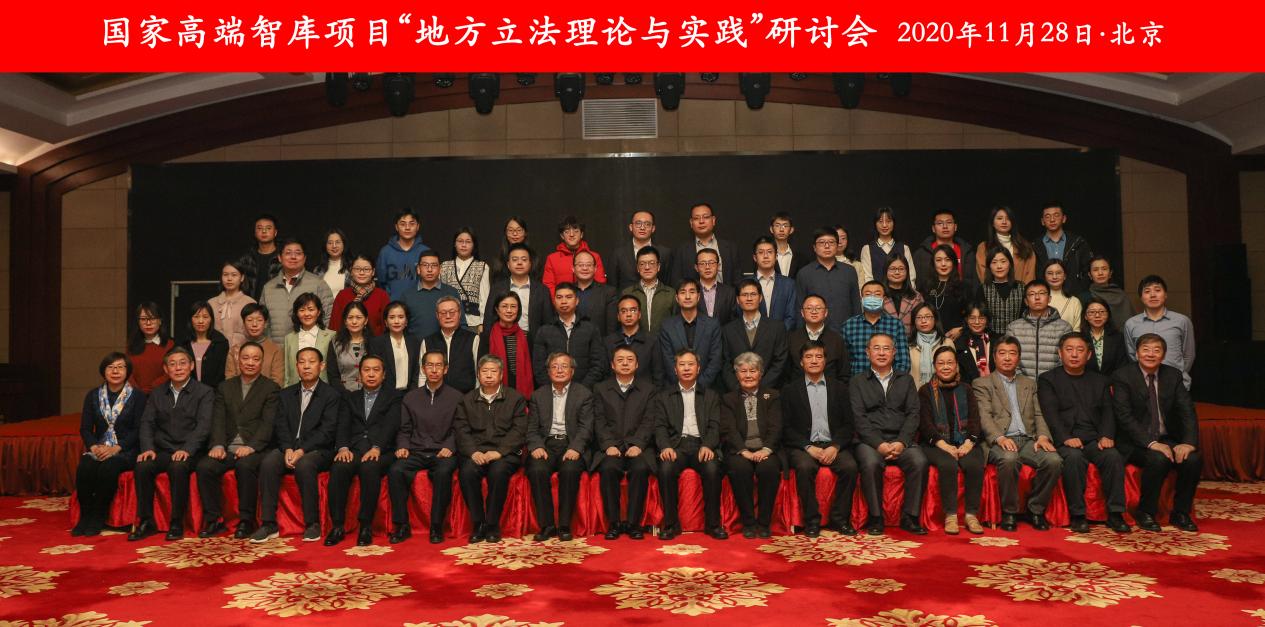The Seminar on Theory and practice of Local Legislation jointly organized by Law School and Human Rights Research Institute of China University of political science and law and Yinghe Law Firm was held in Beijing on November 28.

Chen Sixi, member of the Standing Committee of 13th National People’s Congress and vice chairman of the Social Construction Committee of the National People’s Congress, Lv Zhongmei, member of the Standing Committee of the 13th National Committee of the Chinese people’s Political Consultative Conference and vice chairman of the social and Legal Affairs Committee, Gan Zangchun, vice president of the China Law society, and Ma Huaide, President of China University of Political Science and Law, attended the meeting. More than 80 experts from the National People’s Congress, local people’s congresses, colleges and universities, scientific research institutions, lawyers and other institutions participated in this seminar.

Ma Huaide expressed welcome and heartful thanks to all the guests. He pointed out that at present there are four new problems in some local legislations, such as exceeding the limits of the Legislative Law, beyond authority, being not targeted and operational, and simply repeating the central legislation. He also put forward the direction for further research and stressed that scholars should pay close attention to reality and actively make suggestions.

Chen Sixi delivered a keynote speech entitled Local People’s Congress and Social Construction. He believes that the current social construction is facing three major problems which includes, first, the imbalance and insufficiency of social construction are relatively prominent; second, the theoretical supply of social construction is insufficient, and the relevant research is fragmented, which cannot form a coordinated theoretical system; third, the research on social law is relatively weak, and there is no independent and comprehensive departmental law. Chen Sixi stressed that local people’s congresses have a lot to do in social construction. They should promote the exploration of system reform of social construction and intensify efforts to implement laws and regulations on social construction.

Gan Zangchun delivered a speech entitled legal basis of local legislative power. He pointed out that local legislative power is an important part of the socialist legal system, which not only ensures the effective implementation of the Constitution and laws in the administrative region, but also provides order and guarantee for solving problems encountered in the process of economic and social development, and its achievements should be fully affirmed. However, while actively, cautiously and steadily promoting the expansion of local legislative power, there are also problems such as insufficient legislative space and insufficient legal resources provided. It is necessary to study the legal issues involved in local legislation.

Lv Zhongmei delivered a speech entitled How to Understand the Provisions of the Green Civil Code. She pointed out that the green principle is an effective response of the Civil Code to environmental problems and belongs to restrictive principle. This principle establishes the values of green development, ecological security and ecological ethics in civil law, and coordinates the relationships between development and environmental protection, transaction security and ecological security, intra generational equity and intergenerational equity. Lv Zhongmei also elaborated the embodiment of green principle in various parts of Civil Code and the application of green principle.
In the morning, representatives from the National People’s Congress and legislative organs in Beijing, Zhejiang, Hebei, Shandong and Guangdong, as well as experts and scholars from universities and scientific research institutions such as Peking University, Chinese Academy of Social Sciences, China university of political science and law, East China Normal University, etc., had in-depth exchanges and discussions on practical experience of local legislation and theoretical issues of local legislation. In the afternoon, experts, scholars and lawyers at the meeting had a full discussion on the two topics of civil code in the perspective of public law and general theory of legislation.
Professor Li Shuzhong of the Law School of China university of political science and law said that it is rare for all experts to come together to bring a high-quality Conference on local legislation. He once again expressed his heartful thanks and best wished to the participants.

The seminar is one of the key activities of the national high-end think tank in 2020. It aims to thoroughly study and implement Xi Jinping's Thought on Rule of Law, further strengthen and improve the local legislation in the new era, and promote the basic theory and practical research of local legislation.